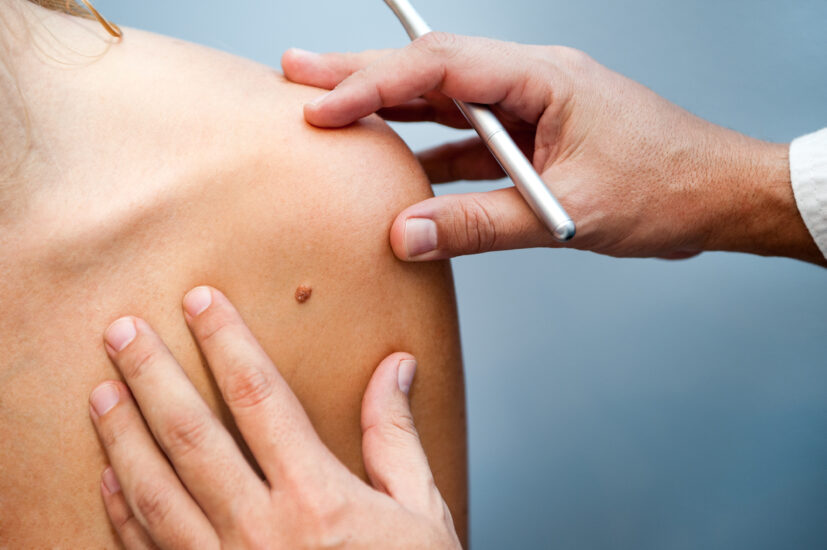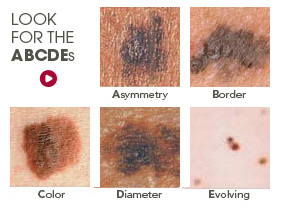The Role Of Mole Exams

Preventing skin cancer isn’t a one and done process. You can’t rely simply on sunscreen. Or just on self-exams. You also need a regular examination of your moles by an experienced dermatologist. Midwest Dermatology has performed thousands of mole examinations over the last 40 years. We understand the important role these exams play in screening your skin for melanoma, the most deadly form of skin cancer, as well as for basal and squamous cell skin cancers.
Who Should Have a Mole Exam?
Not sure if you need an exam or not? Just ask yourself these questions:
- Do you have a suspicious mole or skin lesion?
- Do you have a previous history of skin cancer?
- Do you have a large number of moles
- Do you have an unusual looking or very large mole?
- Do you have a family history of skin cancer?
If you answered yes to any of these, you should consider seeing a dermatologist for a mole examination.
How often should Skin Be Examined?
Your skin – especially the parts that are exposed to the sun on a regular basis – changes constantly.
Midwest Dermatology recommends that you conduct your own at-home mole and skin exam monthly. Check your body out head-to-toe and look for changes. Be especially on the lookout for spots and moles that display any of the ABCDE warning signs of melanoma:
- Asymmetry, where one side doesn’t match the other.
- Borders that may be notched or scalloped.
- Color that is uneven or mixed, or has changed recently.
- Diameter – is the mole bigger around than a pencil eraser?
- Evolving, changing in size, shape and color.
 However, at-home mole and skin exams are only part of the equation. It’s also important to have your skin examined annually by a Midwest Dermatology specialist. Our board-certified dermatologist have the expertise and experience needed to determine if moles are cancerous or not. REGULAR SKIN EXAMS CAN HELP PREVENT SKIN CANCER.
However, at-home mole and skin exams are only part of the equation. It’s also important to have your skin examined annually by a Midwest Dermatology specialist. Our board-certified dermatologist have the expertise and experience needed to determine if moles are cancerous or not. REGULAR SKIN EXAMS CAN HELP PREVENT SKIN CANCER.
When You’re Just Not Sure….
Sometimes skin changes and may look “funny” in a way that’s completely unlike the warning signs of melanoma. These types of skin changes may, in fact, be basal cell or squamous cell skin cancers.
Warning Signs to look for include:
- A Growth that is new or increases in size
- A spot that itches, crusts, scabs or bleeds
- Sores and pimples that don’t seem to heal, or have a shiny, pearl-like appearance
- Open sore or wound that doesn’t heal
An appointment at Midwest Dermatology can provide you with a comprehensive examination of your skin, or it can be used to look more closely at a mole that may be causing you concern. You can make the most of your mole exam by bringing any skin changes to the attention of the Midwest Dermatology team at the time you set your appointment.
If you’ve been diagnosed with skin cancer previously, annual check-ups are critical. Skin cancer can strike again, and patients who have had one episode of skin cancer are at a higher risk of developing skin cancers again.
Regular self-exams and skin examinations performed by Midwest Dermatology work together to help ensure the overall health and well-being of you and your skin.
Make an appointment today at one of our 6 convenient locations at our new phone number at (402) 933-0800. And make sure to add our new number to your contact information!

